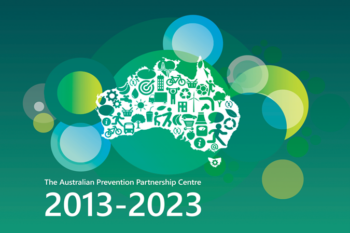Community mandate continues for government health interventions

DATE
TYPE Media releases
The 2021 Australian Perceptions of Prevention Survey (AUSPOPS) is the third study to survey community perceptions on government interventions for the prevention of lifestyle-related chronic disease. More than 2,200 people across Australia were surveyed earlier this year, building on the findings of previous AUSPOPS in 2018 and 2016.
Half of the Australian population currently has a chronic disease and many of these could have been prevented by addressing risk factors including smoking, alcohol consumption, poor nutrition and physical inactivity.
Lead investigator Dr Anne Grunseit from the University of Sydney said the study showed continued and growing community support for governments to help address lifestyle-related health issues.
“The proportion of people who believed government has a large or very large role to play in maintaining health increased from 46% in the 2016 to 63.5% in the 2021 survey,“ Dr Grunseit said.
“This is a level of change rarely seen in population surveys, and one that shows the community are very supportive of government intervention. This support strengthened over the three surveys with by far the majority of respondents overall agreeing that ‘sometimes government needs to make laws that keep people from harming themselves’,” she said.
The proportion that disagreed with the statement that the government interferes too much in our everyday lives increased from 48.6% in 2016 to 61.7% in 2021. More than half of the respondents (55.4%) indicated that the government is yet to go far enough with regulation and policies to help reduce the rates of lifestyle-related diseases such as diabetes, heart disease and obesity.
However, perceptions that the government has not gone far enough with restrictions on alcohol advertising decreased to 39.5% from 45.4% in 2016 and support for further action on salt limits in processed foodalso dropped from 55.3% in 2016 to 49.9% in 2021.
“Despite the ongoing community support for government intervention overall, it is concerning that these two areas have not continued to garner support from the general population,” said Dr Grunseit. “We have strong evidence for how restrictions on alcohol advertising and salt limits in processed food can benefit health. These results should prompt further action for community education programs,” she said.
Since the 2018 results were released, with a strong mandate from the community for government-led interventions, the Australian Government announced the development of their National Preventive Healthy Strategy. The Prevention Centre looks forward to the release of this Strategy, expected this year, confident that the community will continue to welcome government action.



